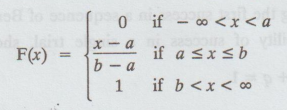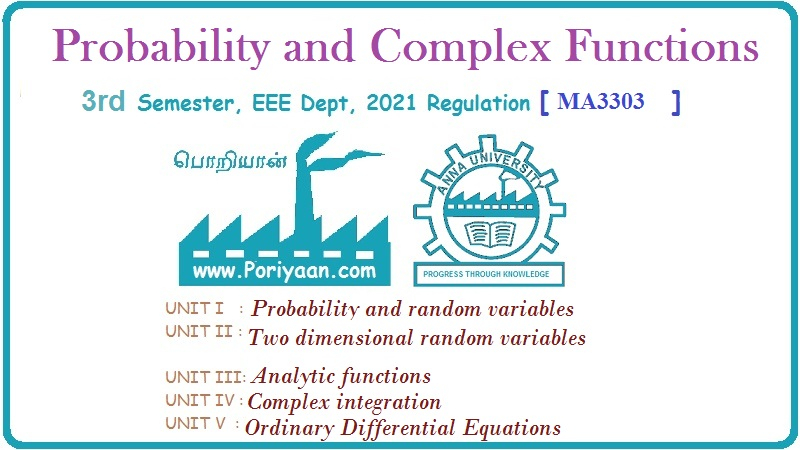Probability and complex function: Unit I: Probability and random variables
Uniform distribution (or) Rectangular Distribution
Random variables
A random variable X is said to have a continuous uniform distribution over an interval (a, b) if its probability density function is a constant = k, over the entire range of X.
Uniform
distribution (or) Rectangular Distribution
1. Uniform Distribution
A
random variable X is said to have a continuous uniform distribution over an
interval (a, b) if its probability density function is a constant = k, over the
entire range of X.
(i.e.,)
f(x) = K, a < x < b
=
0, otherwise
Since,
the total probability is always unity.

K
[b-a] = 1
K
=1/ b - a
f(x)
= 1/b – a, a < x < b
=
0, otherwise
a
and b are said to be the two parameters of the uniform distribution on (a, b).
Note:
The uniform distribution is also known as rectangular distribution, since the
curve y = f(x) describes a rectangle over the x-axis, between the ordinates x =
a and x = b.
2. The distribution function of the uniform distribution
The
distribution function F (x) is given by

Since
F(x) is not continuous at x = a and x = b, it is not differentiable at these
points.
Thus
d/dx [F(x)] = f(x) = 1 / b – a ≠ 0 exists
everywhere
except at x = a and x = b.
Note:
The pdf of a uniform variable 'X' in (-a, a) is given by

3. Characteristic function of a uniform distribution
Characteristic
function is given by

4. Moments of a uniform distribution
Moments
are given by

5. Mean deviation about the mean of uniform distribution
Mean
distribution about mean is given by

Probability and complex function: Unit I: Probability and random variables : Tag: : Random variables - Uniform distribution (or) Rectangular Distribution
Related Topics
Related Subjects
Probability and complex function
MA3303 3rd Semester EEE Dept | 2021 Regulation | 3rd Semester EEE Dept 2021 Regulation
